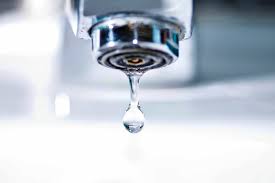Fracking not the problem with water in Youngstown

For the umpteenth time, Youngstown residents will be asked to ban fracking, and for the umpteenth time – eighth – The Vindicator will oppose the foolhardy Home Rule Charter amendment.
That said, we do have a suggestion for Ray and Susie Beiersdorfer and their anti-fracking cohorts: Turn your attention to the real issue that poses a threat to the city’s water.
It’s called House Bill 602 and is sponsored by Republican Mike Duffey of Worthington, R-21st. To put it simply, Duffey is proposing a snatch-and-grab of this valuable commodity.
If the bill becomes law, the cities of Youngstown and Niles, which paid for the construction of Meander Reservoir and the creation of the Mahoning Valley Sanitary District, would be placed in financial jeopardy. That’s because Duffey’s legislation would ban the surcharges cities like Youngstown and Niles levy on suburban water customers.
The two communities, along with the village of McDonald, buy drinking water in bulk from the MVSD, which operates a water purification plant in Mineral Ridge. The cities then sell the water to their customers within their boundaries and in the suburbs. The surcharges paid by the suburbanites are designed to cover the additional costs of supplying water and maintaining the delivery network.
Youngstown has customers in all of Austintown, as well as parts of Canfield, Boardman and Liberty townships. They pay 40 percent more than the residents and businesses within the city’s boundaries.
The legislation proposed by Rep. Duffey would financially punish communities for charging suburbanites more for water. Although the bill would allow municipalities to recoup costs tied to the maintenance of their water systems, it doesn’t say what constitutes maintenance.
The issue of recouping costs isn’t new for Youngstown. The city and Austintown have clashed in the past over the rate surcharge, waterline breaks, the city’s failure to upgrade the infrastructure and even the replacement of the water tower.
Former Austintown trustees went so far as to look at other possible suppliers of water for their residents, but Youngstown’s ownership of the delivery system is a major impediment to such independence.
Very costly proposition
Indeed, it was determined that the township would have to pay Youngstown hundreds of millions of dollars for the infrastructure.
That’s why the legislation to punish cities that supply drinking water to the suburbs at a higher rate than their residential users pay is nothing more than political gamesmanship.
Duffey is ignoring history and reality if he believes Youngstown and Niles, which financed the creation of the MVSD in 1926 in response to a demand from the steel mills for clean water, will remain silent while the suburbs reap the benefits.
Every community in the Mahoning Valley had a chance to participate in the building of the reservoir and creation of the water district.
There is now a lull in the Youngstown-Austintown water fight, but an on- going battle between Liberty and Girard shows the intractability of the issue.
Liberty officials, led by Trustee Jodi Stoyak, contend that the 40 percent surcharge Girard levies on township residents isn’t justified, given the low water pressure. The contract between Liberty and Girard was entered into in 1958 and expires in 2020.
But like Youngstown in its clash with Austintown, Girard isn’t about to give Liberty a break.
“We’re not going to negotiate a lower price,” said Mayor James Melfi, whose city buys water from Youngstown and Niles and pays a surcharge.
The water wars will continue so long as there are perceived haves and have-nots.
That said, House Bill 602 is not the answer. It would only result in an extended legal battle.
A couple of years ago, The Vindicator proposed a Valley-wide conference on water with the goal of creating a regional water authority to replace the MVSD.
We acknowledged that Youngstown and Niles would have to be compensated for their initial investment in the creation of the district and the subsequent expansion of the infrastructure.
But truth be told, the customer base of the two cities has been declining, the result of which has been an overall decrease in the amount of water drawn out of Meander Reservoir.
We believe the time has come for an independent evaluation of the Mahoning Valley’s drinking water needs. The decline in the region’s population and the loss of large manufacturing have exacerbated the problem.
 43
43
